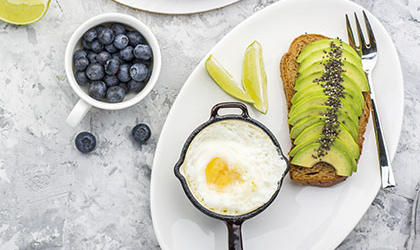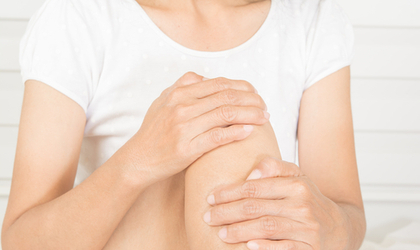
Optimising your nutrition during pregnancy won’t only give your baby the best start in life, but it will also provide you with the fuel and nourishment needed for your journey towards motherhood. Some nutrients take pride of place during pregnancy – and iron is one of them. Let’s find out why.
What is iron?
Iron is a mineral that supports growth and development. It’s best known for manufacturing haemoglobin, a protein in red blood cells that transports oxygen from the lungs to every corner of the body. Iron, crucially, supports cognitive function, immunity, energy, and cell division.
Why is iron essential during pregnancy?
During pregnancy, you have a greater need for iron – approximately 27mg daily – to produce enough healthy red blood cells for you and your baby.
Low iron levels in pregnancy may lead to iron deficiency anaemia, a condition in which red blood cells can't carry adequate oxygen around the body, leaving you tired and vulnerable to infections (1).
Iron deficiency anaemia in pregnancy has also been linked to low birth weights, premature labour and birth, reduced breast milk, fatigue in the few months after birth, and postnatal depression (2).
If you're carrying twins or multiple babies, experience severe morning sickness, are vegetarian or vegan or already have anaemia, you're more likely to develop iron deficiency anaemia in pregnancy. Your midwife will offer a routine blood test to check your iron levels when 28 weeks pregnant.
Where can you find iron?
Food contains two types of iron: haem and non-haem iron. Haem iron is found in animal foods like red meat, fish, chicken, and eggs. The body absorbs this form of iron the best.
Liver is one of the richest sources of haem iron. However, you should limit your intake to 50 grams per week as it contains high levels of vitamin A, which may harm the baby if consumed in excess.
Equally, take care with pâté, delicatessen meats, smoked salmon, and uncooked seafood during pregnancy. Although these foods contain iron, they may carry listeria, a bacterium that can be dangerous to an unborn baby.
Non-haem iron is found in plant-based foods, such as green leafy vegetables, lentils, beans, nuts, seeds, and dried fruit. The body doesn’t absorb non-haem iron as well as haem iron. However, eating vitamin C-rich foods at the same meal – kiwi, berries, tomatoes, citrus fruits, and cabbage, for instance – can support absorption.
Whatever your dietary preferences, try to include two servings of iron-rich meat, chicken, fish, legumes, or nuts daily. Eating plenty of greens will help increase your mineral reserves, too.
Should you take an iron supplement during pregnancy?
Many women struggle to meet the increased need for iron during pregnancy through diet alone. Taking a high-quality, comprehensive prenatal multivitamin is a simple and convenient way to ensure a reliable intake of iron, along with other important pregnancy nutrients, such as folic acid , vitamin D3 , choline, iodine, and calcium.
Find out more
If you found this article on iron and pregnancy useful, you can find similar guidance on our health blog. Alternatively, please get in touch with our team of expert Nutrition Advisors, who are on hand to provide free, confidential advice.
References:
-
NHS. (2021). "Iron Deficiency Anaemia." NHS. [online] Available at: https://www.nhs.uk/conditions/iron-deficiency-anaemia/.
-
Sifakis S, Pharmakides G. (2000) "Anemia in pregnancy." Ann N Y Acad Sci. 900:125-36.
You Might Also Like

Olivia
Olivia Salter has always been an avid health nut. After graduating from the University of Bristol, she began working for a nutritional consultancy where she discovered her passion for all things wellness-related. There, she executed much of the company’s content marketing strategy and found her niche in health writing, publishing articles in Women’s Health, Mind Body Green, Thrive and Psychologies.
View More



